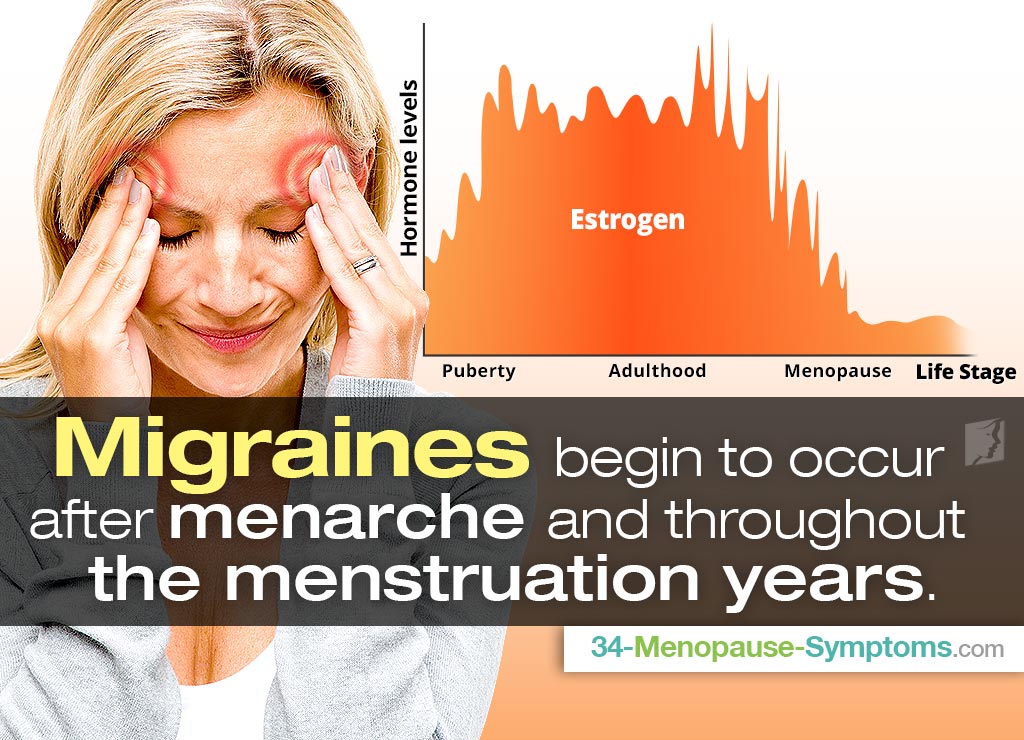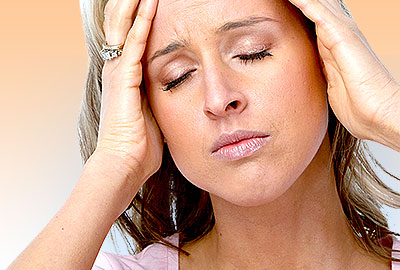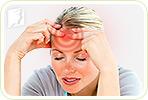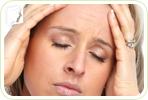Headaches are a very common complaint among women, particularly due to the hormonal changes throughout your reproductive life. It is thought that the connection between headaches and estrogen levels is the main reason why 70% of Americans who suffer from headaches and migraines are female. Find out more about how these two factors relate, and what to do if you are ever accosted with hormonal headaches or migraines.
How Can Hormones Influence Headaches?
The influence of female reproductive hormones - namely estrogen - with headaches or migraines has been immensely investigated by scientists and neurologists, but the precise mechanisms are yet to be fully understood. It is known that women experience migraines to a far greater extent than men, and that they begin to occur after menarche and throughout the menstruation years. Research has also shown that headaches and migraines generally correspond to a woman's monthly cycle, revealing that the rise and fall of estrogen during this sequence has an impact on pain in the head.
What Are the Symptoms of a Hormonal Migraine?
Hormonal migraines usually manifest around two or three days before menstruation, or they could occur during the first few days of it because this stage is when estrogen levels plummet. For perimenopausal women, the fluctuation of reproductive hormones can cause headaches at different times. It can be more difficult to keep track of migraine patterns at this time due to sporadic or nonexistent periods. A hormonal migraine can entail:
- Blurred vision - often in just one eye
- Seeing flashing or constant lights
- Acute sensitivity to light
- Feeling sick
It is possible to experience a hormonal migraine without these symptoms, these are generally referred to as migraines “without aura”.
How Can These Be Treated in the Long Term?
Hormonal headaches can be greatly reduced by the regular administration of an estrogen therapy. It is advisable to talk to your doctor about your options, but these might be:
Estrogen supplements. There are a number of options for enhancing your estrogen levels, including natural ingredients such as soy and black cohosh.
Hormone replacement therapy (HRT). Designed for women going through menopause, HRT is available a different forms, such as gels and patches, and is used to reinstate hormonal balance.However, its side effects include an increase of blood clots and breast cancer.
How Can I Alleviate a Hormonal Headache Quickly?
Should you encounter a hormonal migraine, it can be helpful to know some successful relief techniques that are valued by a vast number of women. Methods for quickly curing a migraine include:
- Taking paracetamol, ibuprofen or similar
- Resting with closed eyes - often lying down
- Application of an ice pack
- Drinking lots of water
Hormonal headaches and migraines can cause great distress, especially if they are so severe that they inhibit you in everyday life. Learning about the reasons behind them, specific symptoms, and effective methods can be helpful when it comes to understanding this condition. Learn more about how to deal with daily headaches.
Sources
- National Health Service UK. (2015). Hormone headaches. Retrieved June 14, 2017, from http://www.nhs.uk/Livewell/headaches/Pages/Hormonalheadaches.aspx
- The North American Menopause Society. (n.d). My-Oh-Migraine: Hormonal Headaches & Menopause. Retrieved June 14, 2017, from https://www.menopause.org/for-women/menopauseflashes/women%27s-health-and-menopause/my-oh-migraine-hormonal-headaches-menopause
- Mayo Clinic. (2015). Chronic daily headaches. Retrieved June 14, 2017, from http://www.mayoclinic.org/diseases-conditions/chronic-daily-headaches/in-depth/headaches/art-20046729
- Chai, N.C. et al. (2014). Migraine and estrogen. Curr Opin Neurol, 10.1097/WCO. Retrieved from https://www.ncbi.nlm.nih.gov/pmc/articles/PMC4102139/




